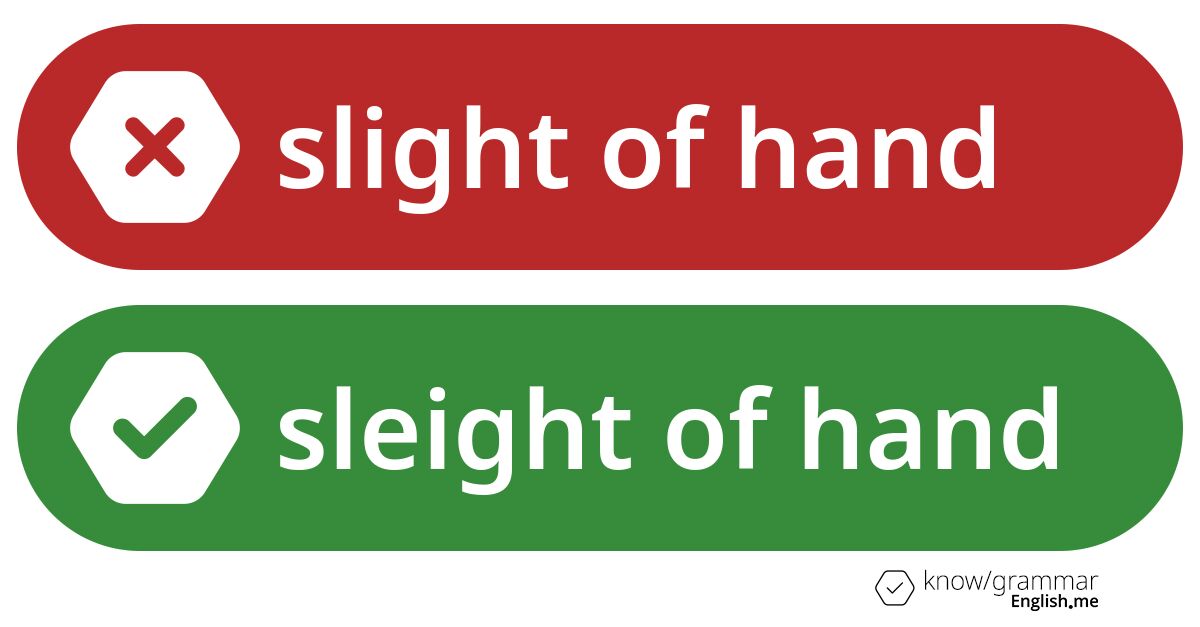A magician’s secret: why "slight of hand" deserves a disappearing act
Reviewed and edited by  Lloyd Cooper 10/10/2024, 07:50
Lloyd Cooper 10/10/2024, 07:50
English.me team member
 What kind of error is it?
What kind of error is it?

Spelling error and homophone mistake
 Why do people make this mistake?
Why do people make this mistake?
People often incorrectly hear or remember the phrase "sleight of hand" as "slight of hand" because "sleight" is less commonly used in everyday language and sounds similar to the more common word "slight".
 What is correct?
What is correct?
"Sleight of hand" is the correct phrase. It refers to a magician's skillful use of hand movements to perform tricks or illusions. The word "sleight" is derived from an Old Norse term meaning cunning or skill. It's important to use "sleight" instead of "slight" because "slight" generally means small in degree or insignificant, which doesn't convey the intended meaning of skill or dexterity.
 Examples of correct usage
Examples of correct usage
- The magician amazed the audience with his sleight of hand, making the coin disappear.
- She learned the art of sleight of hand to entertain her friends with card tricks.

 English
English español
español française
française italiano
italiano deutsche
deutsche 日本語
日本語 polski
polski česky
česky svenska
svenska Türkçe
Türkçe Nederlands
Nederlands